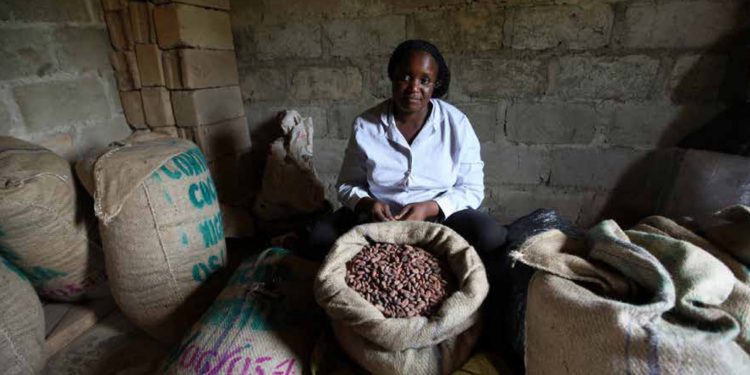Agribusiness suppliers are risking the reputations and profits of their customers, the world’s biggest food brands, by failing to improve their treatment of women, land sovereignty, the environment and small-scale producers. Also, in failing to deliver supply chain transparency and accountability.
The findings were released this week in Oxfam’s report Shining a spotlight: a critical assessment of food and beverage companies’ delivery of sustainability commitments.
While food brands themselves are improving on the above scores, the Oxfam study of Archer Daniels Midland (ADM), Barry Callebaut, Bunge, Cargill, Louis Dreyfus Company, Olam International and Wilmar International Limited found suppliers are sorely lagging.
Only Olam exceeded a 50 per cent average across the five scorecard themes. The women, land and climate themes all saw the lowest average increases.
Oxfam found that agribusiness food brand customers, Associated British Foods (ABF), Coca-Cola, Danone, General Mills, Kellogg, Mars, Mondelez, Nestlé, PepsiCo and Unilever, were improving significantly faster, in response to investor and consumer pressure.
However these big brands risk being tainted while abuse and criminality persists in their supply chains, managed by agribusinesses.
Unilever found untapped opportunity of €966 billion in a €2.5 trillion total market for sustainable goods
The report says most governments are failing to protect labour, land and environmental rights. The European Union is crafting new laws requiring human rights due diligence by companies operating in Europe. Otherwise, specific regulations for human rights in supply chains are legally binding only in California (US), the UK, France and Australia.
An earlier report for Oxfam said the costs of failing to address these risks are becoming clear. Unilever found one‐third of consumers prefer brands they believe are doing social or environmental good, indicating a potential untapped opportunity of €966 billion in a €2.5 trillion total market worldwide for sustainable goods.
A recent Edelman Global Trust survey identified inequality as the primary issue capturing the public imagination. And a Consumer Goods Forum and Futerra survey found that 70 per cent of shoppers are more interested in product transparency than in choosing their favourite brand.
Major food and beverage companies, including Nestlé and PepsiCo, are joining calls for mandatory human rights due diligence, despite many companies working against measures that would give teeth to such legislation.
Where governments fail or are unable to tackle abuses, which is often the case in long global supply chains like cocoa, sugar cane or palm oil, companies look to formal multi-stakeholder initiatives (MSIs) to drive sustainability across their commodity supply chains.
But, a recent report by MSI Integrity concludes that, “MSIs are not effective tools for holding corporations accountable for abuses, protecting rights holders against human rights violations, or providing survivors and victims with access to remedy.”
What farmers earn from retail prices has decreased by 44 per cent since 1998
Investors increasingly recognise the high financial risks attached to poor environmental and social performance. The report says US institutional investors and asset managers are pushing companies to minimise the negative environmental and social impacts of their supply chain operations across sectors. Support for Environmental and Social Governance resolutions filed at annual meetings is continuing to trend upwards.
What farmers earn from the consumer price of a typical food basket has decreased by 44 per cent since 1998, while input suppliers, traders, food manufacturers and supermarkets have all increased their share.
The rights and livelihoods of 2.5 billion people in smallholder agriculture around the world are at risk, as more land is concentrated in the hands of the elite.
The report says, “Companies are more advanced in preparing for a step change on climate change and biodiversity. Yet despite the urgency, there is little real action on the issue of inequality.
“Now is the time for the food sector to move from the gradual adoption of good practices toward faster, more fundamental transformation.
“Short-term profits and disproportionate shareholder returns are irreconcilable with investing in economically resilient supply chains or achieving true social and environmental sustainability.”























